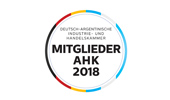On September 23, 2015, the Argentine Congress passed a draft (the “Draft”) which amends Law No. 26,190, governing the National Promotion Regime of Power Generation from Renewable Sources (“Law of Renewable Energy”).
The Law of Renewable Energy, enacted in December, 2006, declared the power generation from renewable sources to be of national interest, both for the rendering of public services and for the technological development and manufacturing of equipments for that purposes.
With regard to the renewable energy aim, legislation established that by 2016 Argentina must have covered 8% of its energy demand with renewable sources. This is the reason why an investment regime was established for a 10-year term, aimed at the construction of new works (civil, mechanical and assembly) for the production of electric power from renewable sources.
At the same time, the Argentine Executive Branch was obliged to foster investment in renewable energy through several public policies. As a matter of fact, in 2009, a federal program for the development of renewable energy known as “GENREN” was launched. Through this program, the government expected to increase investment offering the tender of one thousand megawatts (1000 MW) of renewable energy by 15-year term contracts. Beyond the impact of such program, in June, 2010, only 895 MW were allocated to offerors, representing only 61.3% of the initially proposed energy.
Therefore, nowadays only 1% of the energy stems from renewable sources. This means that in Argentina there has been a scarce development of said energy, making it difficult to reach the coverage to 8% of its demand of renewable energy. Argentina expects to achieve this aim by 2016.
As a consequence, the amendment of the Law of Renewable Energy was put forward. Although the Executive Branch has not already approved the project and published it in the Official Gazette, the most relevant aspects of the amendment should be mentioned:
• In accordance with the last annual report issued by the Compañía Administradora del Mercado Mayorista Eléctrico Sociedad Anónima of the Wholesale Electricity Market which holds that the production of energy from renewable sources is scarce, new aims are established, namely: (i) a short-term aim, consisting in reaching a contribution of 8% by December 31, 2017, and (ii) long-term aim, consisting in reaching a contribution of 20% by December 31, 2025.
• In order to foster investment in the market of renewable energy, new tax benefits are introduced, such as tax certificates. Other benefits remain, including the accelerated amortization of the goods in connection with the Income Tax, the anticipated refund of the Value Added Tax [I.V.A.], and the exclusion of the tax on presumed minimum income.
• In accordance with the new legislation, the owners of the projects of power generation from renewable sources are exempt from paying import taxes over capital goods, equipment and other related assets, provided that they are new, until December 31, 2017. Moreover, the access to and use of renewable energy will not be subject to any fee (except for those required for the use of tax lands), royalties or any other tax until December 31, 2025.
• At the same time, in order to foster the consumption of energy from renewable sources, all users of energy in Argentina must contribute to the fulfillment of the short and long-term aims above mentioned.
In fact, for example, users whose energy demand exceeds 300 kilowatts will be authorized to generate or purchase energy from renewable sources. In which case, the purchase cannot exceed USD 113 per megawatt per hour (MW/H) for a 2-year term from the effective date of the new legislation. After the expiration of such term, the relevant Authority can modify the value of the agreements that may be entered into from that time.
Upon failure to fulfill the aims, users and distributors must pay for the remainder an amount equivalent to the variable cost of electric production using imported gas oil, calculated as the average of the twelve months prior to the expiration date.
• The Project determines that the electric energy stemming from intermittent renewable sources will have a treatment similar to that of the hydroelectric power plants.
• Finally, this new legislation introduces the Trust Fund for the Development of Renewable Energy (Fondo Fiduciario para el Desarrollo de Energías Renovables, “FODER”), an administrative and financial trust, which will operate through funds from the Treasury, which cannot be less than 50% of the annual savings of fossil fuel.
FODER will be authorized to provide funds as well as to give loans, acquire trust securities from the public and private sector, make capital contributions, and grant guarantees.
FODER will operate through the Argentine Ministry of Economy (trustor), the Investment and Foreign Trade Bank (trustee), and the owners of the renewable sources ´investment projects (beneficiaries), who will be authorized by the relevant authority.
On September 23, 2015, the Argentine Congress sanctioned the Project that amends the Law of Renewable Energy, which is expected to be enacted and published in the Official Gazette.









